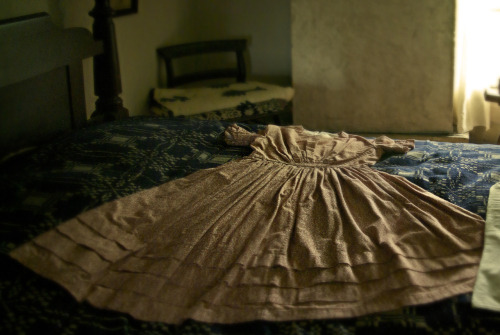The Dubliners - Clavelitos

In the hostel in Dublin, there was a white board with suggestions of where to go next.

Shannon, Ireland
Swift is actually a crazy person. He uses biting Juvenalian satire in his works and is a coprophiliac. His writing is precise and clear and situationally ironic.
Gulliver’s Travels
- as a whole, divided into four books
- satire of men’s desires for scientific knowledge
- inventive travel through literature - plays around with perspective - makes insignificant things more important and unimportant things insignificant
- Gulliver is first a victim of a shipwreck and has lost his glasses so is concerned with his eyes because he lacks protection
- Swift wants the reader the see the emphasis on seeing clearly
- Gulliver has characteristics of every man - gullible - to gull someone is to trick them - he is easily gulled
- the Lilliputans are nasty and petty so we side with Gulliver - he is the gentle, well-meaning person who is not trusted
- the little people chain him to an abandoned church - they are small-minded, secretive, waspish, irritable and morally little
- they are representative of English people - religious quarrels, etc.
- the Lilliputans drug Gulliver while he is eating so they can move him to the church - satiric - fighting over religion
- Redrasol explains quarrels to Gulliver and warns him about what the court plans to do with him
- Gulliver is kept inside the church as if he is a big elephant - goes out to the end of his chain, as if he were a dog - Swift exaggerates our animalistic characteristics to us make us disgusted with being human
- Swift has nasty things to say about women throughout Gulliver’s - misogyny and misanthropy
- his works make you not proud to be a human
- Gulliver is accused of flirtations with some of the court officials’ wives - disproportionate and gross
- Gulliver is convinced to wade across the water to the Blafustus (France) to bring their fleet to Lilliput (Britain) and dispose of the people - he will not do it because he is too kind
- because he consumes too much, the Lilliputans plan to kill him off by slowly starving him
- progression of uncertainty to complete madness - satirizes Gulliver at the end
- progression of animalistic behavior and brutality
- being servile to the emperor, breaking the eggs, high heels and low heels (tories and whigs)
- with the Brobdingnads, Gulliver is now the small, morally little one
- the Brobdingnad king is horrified at the thought of all the animalistic tendencies of Gulliver’s nation
- the king realizes Gulliver has left things out and hates it
- Swift is famous for his lists of things - comic exaggerations
- satire of priests, counselors, lawyers, etc.
- last line of Brobdingnads insults human race - Gulliver is tortured in this book
- people are insects
- Gulliver tries to defend his country
- Brobdingnads are not all great - a girl finds Gulliver and gives him to her father who exploits Gulliver for money and keeps him prisoner in a doll house
- when Gulliver begins to wear out and get sick, he is sold to Brobdingnadian queen
- at the end of Book II, the little girl takes Gulliver to the seashore and Gulliver is dropped into the ocean by an eagle
- Europeans see Gulliver in the doll house, rescue him and take him home
- Gulliver is bored and goes to a series of islands
- the island of Laputa - women’s husbands pay no attention to them and to get their husband’s attention, the men’s ears must be flapped
- the island floats above another island that the women climb down to to visit the men below
- Swift satirizes a number of projectors who are looking to make changes
- island of Strood Broogs - people are immortal on this island - satirizes instinctive hopes and beliefs
- there is sometimes a baby born with a mark on his head, signifying his immortality
- you would keep aging and aging and aging and as you aged, you got more decrepit
- Book IV is the most satirical of human reason
- Gulliver arrives in the land of the Winnoms - reasonable horses who are so reasonable they do not feel any emotions
- surprised Gulliver can talk because the horses have slaves who are less-developed human beings called yahoos
- Gulliver is essentially a yahoo and makes sure he never takes off his clothes in front of them
- he is able to cook oatmeal and drink mare’s milk
- eventually, Gulliver is attacked by female yahoos one day while he is bathing - misogyny
- Gulliver is enamored with this society
- Winnoms believe yahoos came about by a sort of mock-Genesis story
- they are so rational they lack feelings - everything is very planned and they have countless theories
- racism of horses - mate according to color
- Winnoms decide Gulliver is dangerous and want him to leave because he is an educated yahoo ad might lead the yahoos in rebellion
- Gulliver leaves in a canoe and sees a European ship - he paddles away furiously to keep from being rescued by the ship
- he lands on an island of savages and the savages immediately attack him - he would rather be attacked than brought back to Europe
- the ship goes after him and the captain sees Gulliver has lost his mind - he tries to reason with Gulliver and brings him back to his family
- Gulliver goes to live in the stables with his horses because he cannot stand the smell of humans
- Swift’s satire is Juvenalian and extremely harsh
“Modest Proposal”
- narrator has come up with a “great idea”
- it cannot be right
- real proposal is given in italics - do not talk about those plans unless you are willing to carry them out
- saw the Irish as servile and too willing to cooperate - crass landowners
- Ireland is a cash cow
- rich Irish live pretentiously and exploit others
- Ireland had a lot of food but it is being exported - not available to poor
- eating of babies - got the idea from the Americans
- a problem with adolescents - too many - boys are not yummy, girls breed
- sold girl in roasts to a lady in Formosa
- animosity against women - frivolous and wasteful

Burren House, Ireland


Right now, I feel like cliff diving.


A Rَisيn nل bيodh brَn ort fé’r éirigh dhuit
[Little Rose, be not sad for all that hath behapped thee]

No comments:
Post a Comment